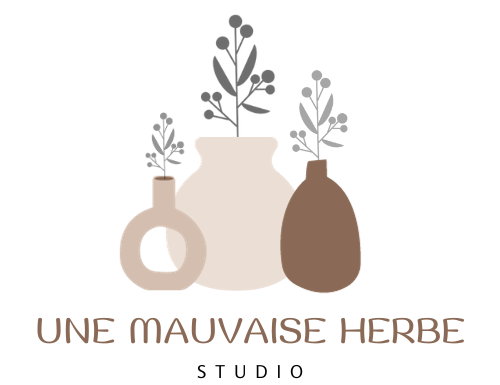After getting my hands muddy in pottery classes at a charming local studio in Montréal, I wanted to build a dedicated pottery space at home, granting the flexibility to create whenever inspiration struck. In this article, I’m thrilled to guide you through the essentials to set up your very own home studio. These top 10 must-have tools are not just random picks, they’re tools I am using on my own pottery journey.
1. Pottery Wheel:
This the number one tool for throwing, a reliable pottery wheel is the heart of your studio. It’s where the clay meets your creativity, allowing you to shape and mold your visions into tangible art. If you only wish to handbuild pottery, you will probably need a Turntable / Banding Wheel instead. I personally adore throwing and because a good professional wheel is so expensive. For that reason, I decided to purchase a Vevor Potter’s Wheel. Check my honest review here.
Available on : VEVOR CA or Amazon CA
2. Work Table:
Every potter needs a dedicated work table. It provides a stable surface for wedging, preparing clay, and organizing your tools. Look for one that can withstand the demands of your creative process. Additionally, consider ease of cleaning to efficiently manage residues. I recommend choosing wood surface. You can enhance its functionality by laying a sheet of cotton canvas, preventing the clay from sticking to the table when wet.
3. Pottery Tools Set:
A comprehensive set of pottery tools is your sculpting sidekick. From ribs to carving tools and basic sponge, I decided to get the whole package Here. I liked that everything was included in a pouch. In addition, a serrated rib features a textured edge that adds unique patterns and textures to your clay creations. It’s great for creating visually interesting surfaces. But I also love to use this rib to scorch my clay in order to attach my handles quickly.
4. Plaster Bat:
A plaster bat is a versatile tool used in pottery for drying and reclaiming clay. It helps absorb moisture from the clay, preventing it from sticking and facilitating the drying process. Additionally, they can aid in reclaiming excess water from recycled clay, contributing to a sustainable pottery practice.
5. Apron
Pottery can get messy, and that’s part of the fun. Equip yourself with a durable apron and comfortable studio attire to protect your clothes and keep you focused on your craft.
6. Sponges and Buckets:
Sponges and buckets are your crew. Keep your hands and tools clean during the pottery process. Have a variety of sponges for different tasks like a Mudsponge an a big Cleaning Sponge. I like to have at least 2 buckets of water. One that I use during my creation process and to wash my tools, and the second bucket to rince everything off and clean my tables with clean water. I do this to avoid clogging my drains with clay water.
7. Measuring Tools:
Achieve precision in your pottery projects with measuring tools. Consistency in thickness and dimensions enhances the overall quality of your pieces. For this, you need a Scale. My favorite is always to go with mechanical, call me old school! I like this scale because of the removable bowl that’s easy to clean.
For my slabs, I use Wooden Sticks to control the thickness and a Rolling Pin.
8. Pottery Glazes and Brushes:
A selection of pottery glazes and brushes for your final touch. Experiment with colors and finishes to add that perfect look to your masterpieces. I personally do not use a lot of colors and like to work with raw clay, but I heard a lot of nice things about the Mayco glazes and they are definitely on my wishlist.
9. Pottery Studio Lighting:
Proper lighting often goes unnoticed but plays a vital role in your creative process. Invest in adjustable studio lighting to ensure a well-lit workspace for intricate details. Especially for those long and dark winter days where extra light is needed.
10. Boxes:
Plastic storage boxes are essential for keeping your clay organized and protected. They come in various sizes and are ideal for storing different types of clay, keeping them moist and ready for use. Additionally, these boxes help prevent drying and contamination between different clay types. A dedicated plastic bin for clay recycling is a smart addition to your studio. Collect clay scraps, trimmings, and failed projects in this bin to be reclaimed and reused, minimizing waste and saving on materials.










